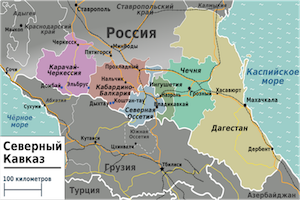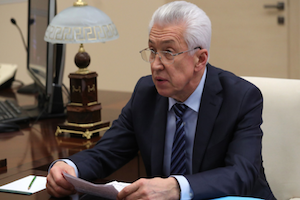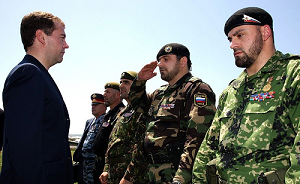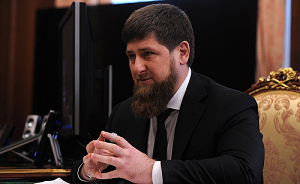Continued Reshuffle in Dagestan's Government
By Huseyn Aliyev
May 14, 2018, the CACI Analyst
Since February 2018, Russian authorities have arrested several dozen top government officials on charges of large-scale financial fraud. Following a wave of elite arrests, the entire Dagestani government was dissolved on February 5. On the eve of the March presidential elections in Russia, the newly appointed head of the North Caucasus republic Vladimir Vasilyev, a native of Tatarstan, launched a sweeping anti-corruption campaign. The purge enabled the Kremlin to remove unreliable clans from power, enabling President Putin to ensure that the number of votes secured in Dagestan was among the highest in the North Caucasus.

Protest Activity Grows in the North Caucasus Republics
By Emil A. Souleimanov and Huseyn Aliyev
February 26, 2018, the CACI Analyst
In 2017, protest activity has grown across the North Caucasus, just as in Russia’s other regions, as shown in a recent report by the Committee of Civil Initiatives (CCI). Socio-economic factors have shaped this trend throughout Russia’s regions, yet in the multi-ethnic North Caucasus these are coupled with a sense of nationalism-driven political discrimination and exclusion. On the eve of the forthcoming Football Championship in Russia, and as war-hardened veterans are returning from Syria to their homeland, this trend may contribute to a worsening security situation in Russia.

Ingush Police to support Chechen Units in Syria
By Huseyn Aliyev
April 26, 2017, the CACI Analyst
A 300-strong battalion of Ingush military police, assembled from among Ingush Special Forces, was dispatched to Syria in February as announced by the head of the Ingush Republic Yunus-bek Yevkurov. According to the Russian Ministry of Defence, Ingush soldiers will replace Chechen military police sent to support pro-Assad forces in and around Aleppo in December 2016. However, in a recent statement, Chechen security officials confirmed that the Chechen units would most likely remain in Aleppo until August 2017. As ceasefire violations between pro-Assad forces and the Syrian opposition become more frequent, reinforcements from Ingushetia may indicate Russia’s intentions to increase its ground troops in Syria.

Attacks in Chechnya Suggest Opposition to Kadyrov is Far from Eradicated
By Emil Souleimanov
March 24, 2017, the CACI Analyst
At the turn of 2016 and 2017, events took place in parts of Chechnya that again challenged the triumphant statements of local pro-Moscow and federal authorities that the jihadist-inspired insurgency in this North Caucasian republic was eradicated. Aside from illustrating the latent character of armed conflict in the region in general and in Chechnya in particular, the recent upsurge of violence in Chechnya contains particularities that may have far-reaching consequences. Sporadic attacks against the Kadyrov regime will likely recur in the years to come and intensify should the regime’s grip on power weaken. 
Revival of Islamist insurgency in the North Caucasus?
By Huseyn Aliyev
October 14th, 2016, The CACI Analyst
The last week of August 2016 saw two large-scale Counter-Terrorist Operations (CTOs) in the North Caucasus republics of Kabardino-Balkaria and Dagestan, followed by another CTO conducted in the second week of September. This relatively low-scale increase in military confrontations between militants and security forces in the region nonetheless indicates a steady recovery of non-ISIS Islamist cells, which have been in decline since the emergence of ISIS in the region. While these recent developments may not indicate a revival of the local Islamist insurgency, they indicate that local insurgent jama’ats are still present and active in the region.





